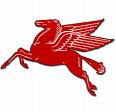Thoroughbred horsemen plan to meet with Betfair officials Dec. 7 to ensure they are party to contracts the Great Britain-based company is signing with United States racetracks for their content.
The National Horsemen’s Benevolent and Protective Association has hosted Betfair officials multiple times over the last several years, and the officials have told horsemen’s groups they are willing to work with them in expanding the wagering marketplace. The situation took a major turn earlier this year when Betfair purchased the U.S.-based TVG advance deposit wagering platform and racing network.
Betfair and various racetracks have announced content agreements this year. The U.S. product is offered overseas through pari-mutuel systems and also used for exchange wagering, which isn’t available in the U.S. The amount of revenue received by U.S. tracks hasn’t been made public.
Horsemen indicated Dec. 6 they haven’t been party to all the deals.
“We made sure they understood horsemen needed to be a part of the process,” National HBPA president Joe Santanna said during a meeting of the organization’s Wagering and Alternative Gaming Information Committee in Tucson, Ariz. “We were the ones that initiated (the dialogue). We have their commitment that horsemen will be involved.”
Ohio HBPA executive director Dave Basler, substitute chair of the WAGI Committee, called international wagering “a different animal.” Thus, horsemen may have to try a different approach to ensure purses receive a share of revenue.
“I’m still optimistic Betfair’s entry into the U.S. will be a positive for horsemen,” Basler said.
Betfair officials will be on hand in Tucson for the University of Arizona Symposium on Racing & Gaming, which gets underway Dec. 8.
In other business at the WAGI Committee meeting, a company called RaceBookAgent.com introduced a technology application it claims could “recast the financial model” for pari-mutuel wagering. The company, which has been involved in wagering technology since 2000, has created what it calls the “Hive ADW Suite” that features a multi-tote platform, auditing tools, secure e-commerce, and an online interactive wagering interface.
The program isn’t an ADW platform; rather, it acts as a middleman that moves wagers from the host to the processor of wagers. In effect, all wagers would be treated like on-track bets, said Dan Kelliher, a consultant for RaceBookAgent.com.
In general terms, racetracks and horsemen would retain 15%-17% of wagers rather than receiving and splitting the average 4.7% host fee, Kelliher said.
“The technology exists that lends itself to a new relationship in our industry for the online market,” Kelliher said. “We’ve started meeting with tracks and horsemen because we wanted to do some baseline education.”
One horsemen’s representative asked if the system is designed to cut out ADWs so the content providers get more revenue.
“We are trying to say that without saying it,” Kelliher said.
Basler said the National HBPA most likely would schedule meetings to further discuss the application with RaceBookAgent.com, which will have a booth at the symposium the week of Dec. 7.
Horsemen acknowledged the challenges such a plan faces in light of revenue generated for ADW companies and the fact major racetrack owners such as Churchill Downs Inc. and Magna Entertainment Corp. own ADW platforms.
The National HBPA also said it plans to pursue a model rule governing racetrack settlements—payments for winning wagers. Officials described scenarios in the industry in which such payments aren’t made for months and alleged tracks are using the money to cover operating expenses.
“The system is in very dangerous jeopardy,” said Dick Powell of Racing & Gaming Services, a high-volume rebate shop.
Powell said a customer earlier this year hit a near seven-figure pick six at Santa Anita Park and was paid immediately by RGS. Santa Anita owner MEC was pursuing bankruptcy protection, so the funds were tied up and RGS was treated as an unsecured creditor.
“If the system is going to work, everyone has to get paid,” Powell said. “You can’t tell a customer, ‘You won, but you’ll have to wait to get paid.' There is no integrity. People are literally borrowing against (customers’ winnings). Most tracks have gotten into the habit of being slow payers on purpose.
“It’s almost embarrassing. It’s 2009, and the industry pays like it is 1935.”
Powell said there is some irony given the fact companies such as RGS have been “demonized” for having players that win a lot of money and generate negative settlements for tracks.
“To be a year behind (in payments) is nothing,” Florida HBPA executive director Kent Stirling said. “There is a cavalier attitude. You can’t believe how badly settlements are done.”
.






































































